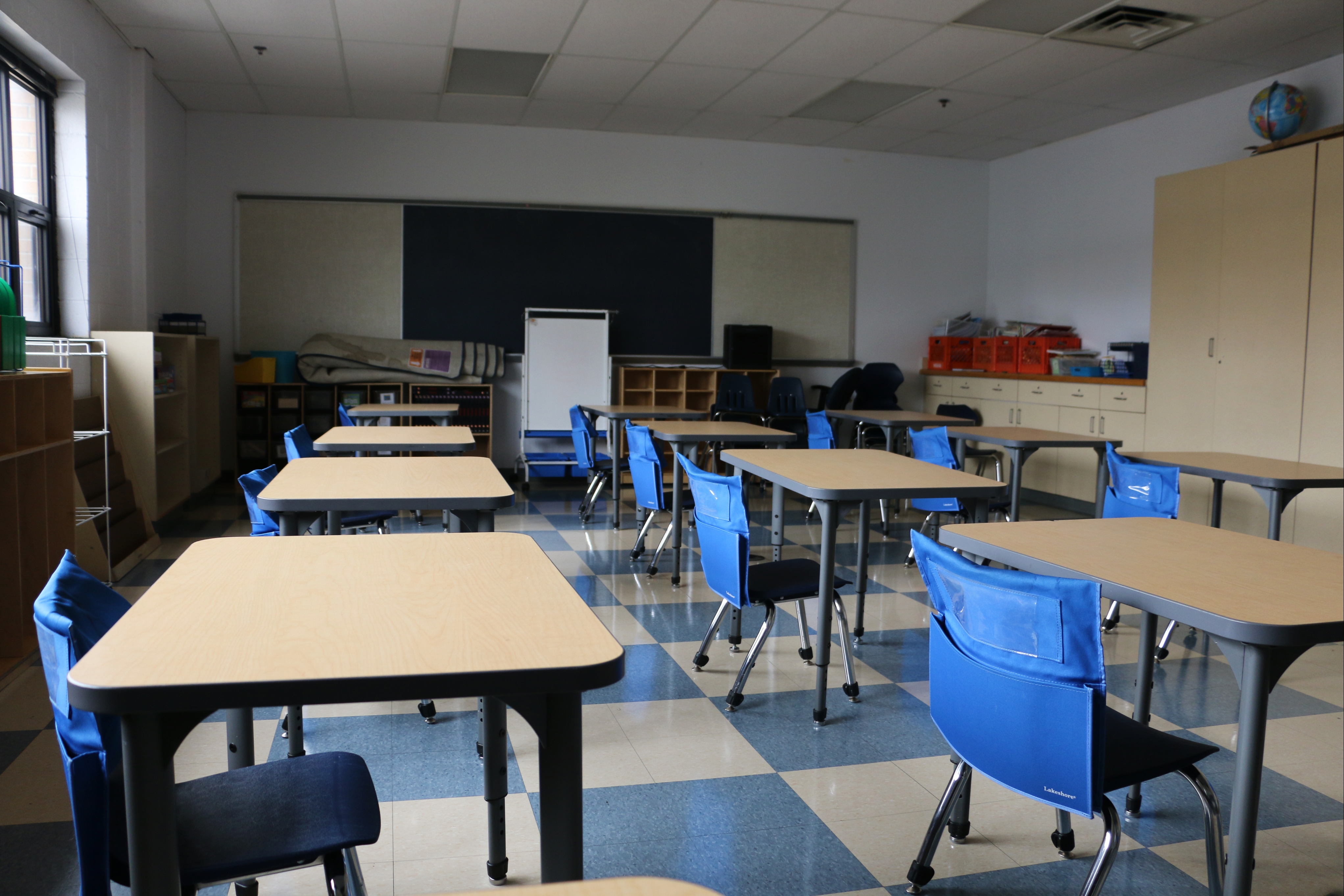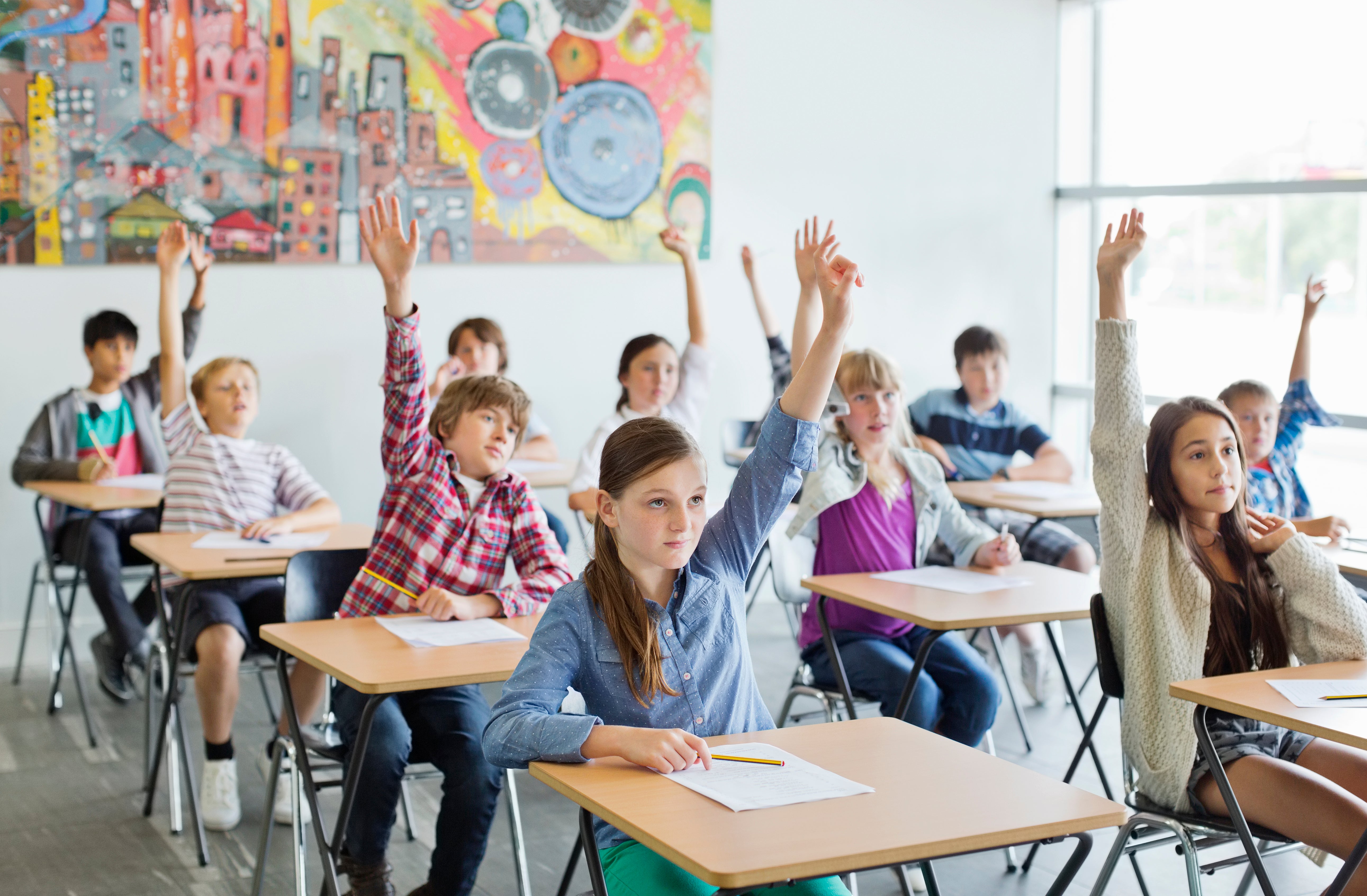The Importance of Local Assistance to Save Temecula Schools Today
The Importance of Local Assistance to Save Temecula Schools Today
Blog Article
Understanding the Relevance of Institutions in Kid Advancement and Area Growth
Schools work as essential institutions for youngster advancement and neighborhood development, offering settings where academic success are matched by the farming of social skills and direct exposure to varied viewpoints. These academic settings not just promote essential thinking and reliable interaction but likewise foster empathy with joint jobs. Institutions' involvement with local areas through service-learning campaigns reinforces the bond between families and academic establishments. This cooperative connection highlights the importance of institutions in supporting energetic citizenship and lifelong understanding habits. What are the certain devices by which these establishments achieve such profound influences?
Academic Accomplishment
Academic achievement acts as a foundation of kid development, supplying the structure whereupon future discovering and success are developed. Colleges play a crucial function in cultivating this academic development, using structured atmospheres where kids can obtain necessary knowledge and cognitive skills. Standardized educational program ensure that students gain proficiency in core topics such as mathematics, science, and language arts, which are crucial for both greater education and learning and expert possibilities.
Along with passing on fundamental academic abilities, institutions also cultivate essential reasoning, problem-solving capacities, and intellectual inquisitiveness. These cognitive proficiencies are vital for navigating complicated real-world situations and adapting to the ever-evolving needs of the modern work environment. Teachers, as facilitators of discovering, utilize diverse instructional strategies to satisfy varied discovering designs, therefore maximizing private pupil capacity.
Additionally, scholastic success is closely linked to self-worth and inspiration. Children that experience academic success are more probable to establish a favorable self-concept and a lifelong enthusiasm for understanding. Schools likewise supply various resources, such as collections and modern technology, which further improve the academic experience and prepare pupils for a technologically advanced society.
Social Ability Growth
Beyond scholastic achievement, the role of institutions in social skill growth is important. Schools work as a primary place for children to learn and practice crucial social skills such as communication, cooperation, and problem resolution. In the organized atmosphere of a class, pupils connect with peers, educators, and other institution personnel, providing many opportunities to create these essential capacities.
Effective social ability advancement in schools is facilitated with group activities, joint jobs, and extracurricular programs. These communications aid trainees comprehend social standards, construct empathy, and cultivate a feeling of area. Group assignments educate trainees exactly how to work with each other towards a common objective, listen to different point of views, and navigate disputes constructively.

The cultivation of social abilities throughout institution years lays a structure for future personal and expert partnerships. Save Temecula Schools. As pupils mature, the capability to properly work together and connect comes to be progressively essential, underscoring the institution's essential duty in holistic kid growth
Direct Exposure to Variety
Direct exposure to diversity in colleges is essential to promoting a comprehensive frame of mind and the original source expanding students' point of views. Schools function as a microcosm of the more comprehensive culture, and coming across varied societies, languages, and socioeconomic histories within this atmosphere outfits students with important skills for navigating an increasingly globalized world. This exposure encourages compassion, minimizes bias, and advertises mutual regard amongst peers.
Research study shows that pupils that communicate with peers from varied histories exhibit much better problem-solving skills and creativity. This understanding of diversity prepares students for future work environments that worth modern capability - Save Temecula Schools.

Area Involvement
The advantages of varied class extend beyond the college walls, promoting a solid feeling of area involvement amongst students. By communicating with peers from different social, socioeconomic, and ethnic backgrounds, pupils obtain a wider point of view and an admiration for variety. This direct exposure urges them to come to be energetic people that are ready to add favorably to their areas.
Colleges that stress community engagement commonly include service-learning tasks, which permit pupils to deal with real-world issues while applying academic skills. These projects not only improve trainees' understanding of their coursework but also instill a feeling of obligation and empathy. Furthermore, partnerships between check over here colleges and neighborhood organizations offer trainees with chances to join neighborhood events, even more solidifying their duty as aggressive area participants.
In addition, adult and community involvement in institutions enhances the bond in between universities and the communities they offer. When institutions open their doors to community events, workshops, and volunteer opportunities, they develop a collective atmosphere that profits all stakeholders. This shared support system makes sure that trainees receive alternative development, preparing them to end up being well-shaped people who value and add to their neighborhoods. Through these initiatives, schools play a crucial role in supporting neighborhood involvement and promoting social development.
Lifelong Learning Habits
Creating lifelong knowing routines is essential for a youngster's continuous growth and versatility in an ever-changing world. Colleges play an essential function in instilling these routines by producing an environment that promotes inquisitiveness, critical thinking, and a love for knowledge. Via diverse curricula and after-school activities, educators encourage trainees to check out different topics, analyze information critically, and apply their click over here finding out to real-world circumstances.

In addition, schools give a structured setting where kids can create self-control and time administration skills, both of which are essential for continual learning. By highlighting the relevance of setting objectives, reviewing development, and adjusting strategies, universities prepare students to navigate the intricacies of grown-up life, guaranteeing they remain lifelong students and factors to society.
Conclusion
In final thought, colleges are essential in promoting youngster development and community growth by supplying settings for academic accomplishment, social skill development, and exposure to diversity. With collective tasks and communications, institutions boost critical thinking, empathy, and communication abilities. Area involvement initiatives better reinforce the bond in between local communities and educational establishments. Eventually, institutions cultivate lifelong learning habits, equipping individuals with the required knowledge and skills to add favorably to culture.
In the structured atmosphere of a class, trainees connect with peers, teachers, and other school team, supplying various possibilities to create these vital abilities.
In significance, exposure to diversity within colleges not just enhances specific trainees yet additionally enhances the social material of the area as a whole.
The benefits of varied class prolong beyond the institution wall surfaces, promoting a strong feeling of community interaction amongst students.Institutions that emphasize community interaction usually incorporate service-learning projects, which allow pupils to attend to real-world problems while applying academic skills. Partnerships in between institutions and regional organizations provide pupils with chances to get involved in neighborhood events, even more strengthening their function as positive area members.
Report this page